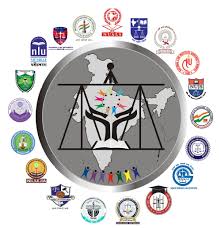The Advisory Board of the Consortium of National Law Universities (NLUs), chaired by Justice Indu Malhotra, has constituted an Expert Committee to recommend major reforms for the Common Law Admission Test (CLAT). These reforms aim to strengthen academic integrity, fairness, and global relevance of the exam from CLAT 2027 onwards.
Committee to Review CLAT Structure and Syllabus
The newly formed Expert Committee includes some of the most respected legal academics from leading international and Indian universities. The members are:
- Prof. Dev Saif Gangjee, Professor of Law, St. Hilda’s College, University of Oxford (Co-Chair)
- Prof. Tarunabh Khaitan, Professor of Public Law, LSE School of Law (Co-Chair)
- Prof. Shyamkrishna Balganesh, Sol Goldman Professor of Law, Columbia Law School
- Prof. Pritam Baruah, Professor and Dean, School of Law, BML Munjal University
- Prof. Surabhi Ranganathan, Professor of International Law, University of Cambridge
The committee has been tasked with conducting a comprehensive review of CLAT’s framework for both undergraduate and postgraduate levels. It will evaluate question design, difficulty levels, and assessment methods to ensure the exam continues to effectively measure analytical reasoning, reading comprehension, and legal aptitude.
Comparative Review with Global Law Entrance Tests
The panel will also compare the CLAT exam pattern and syllabus with international law entrance tests such as the LSAT (U.S.) and LNAT (U.K.). This comparative analysis aims to identify best practices that could enhance the Indian law entrance ecosystem while maintaining fairness and inclusivity. Additionally, the committee will review the composition of question papers, section distribution, and evaluation criteria to align them with the academic goals of legal education in India.
Public Feedback Invited Until November 4, 2025
To promote transparency and inclusivity, the Consortium has opened a public feedback window for stakeholders—including students, educators, and legal professionals—to share their views. Suggestions and comments can be submitted via an online Google Form from October 15 to November 4, 2025. The Advisory Board stated that all recommendations received will be carefully reviewed before finalizing the reform roadmap for CLAT 2027. The initiative reflects the Consortium’s commitment to continuous improvement in legal education and ensuring that CLAT remains one of the most credible and academically rigorous entrance exams in India.


